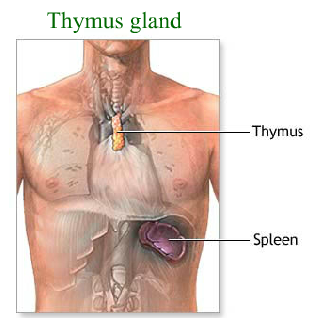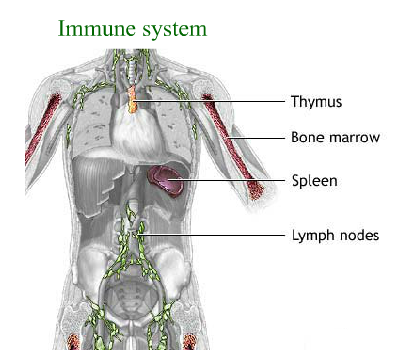
THYMUS GLAND
The thymus gland is a lymphatic organ located in the upper mediastinum between the lungs. During fetal life and childhood it is quite large, but it becomes smaller with age.
The thymus gland plays an important role in the body's ability to protect itself from disease (immunity), especially in fetal life and the early years of growth. It is known that a thymectomy (removal of thymus gland) performed in an animal during the first weeks of life impairs the ability of the animal to make antibodies and to produce immune cells that fight against foreign antigens, such as bacteria and viruses.

IMMUNE SYSTEM
The immune system is composed of many interdependent cell types that collectively protect the body from bacterial, parasitic, fungal, and viral infections and from the growth of tumor cells. Many of these cell types have specialized functions. The cells of the immune system can engulf bacteria, kill parasites or tumor cells, or kill viral-infected cells.
The immune system is the body's special defesense reponse against foreign organisms. This systems includes the lymphoid organs (lymph nodes, spleen, and thymus gland) and their products (lymphocytes and antibodies) and macrophages (phagocytes that are found in the blood, brain, liver, lymph nodes, and spleen).

 aziacademy1-Sangeetha
aziacademy1-Sangeetha